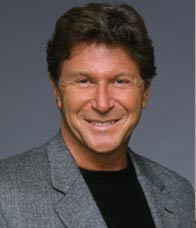|
Interview with Ken Dychtwald on Midlife Crisis
February 2009 - By Dr. Nagendra V Chowdary
 Ken Dychtwald
Ken DychtwaldKen Dychtwald, founding president and CEO of Age Wave 
For avoiding midcareer crisis, you
have advocated 10 questions that every
company should ask. Can you
please tell us the 10 questions and the
implications thereof?
To understand and encourage career
rejuvenation among midcareer workers,
we recommend organizations answer
these ten questions:
- Who are your keepers? Besides
those on the leadership track, who
have the skills, experiences, attitude,
and adaptability you need most for
the long term?
- How many of your midcareer employees
need to rejuvenate some of
their skills or careers?
|
|
- Are you employing any methods to
rejuvenate midcareer workers?
Which work best?
- How freely does experience,
knowledge, and talent flow in your
company? Can employees move
around the organization?What’s clogging
the arteries?
- How consistently do you make
each job assignment work not only
for overall business performance but
also for individual employee growth?
- Do you tap people for fresh assignments
when their personal circumstances
change (for example, when
their children grow up and leave
home)?
- Do you encourage employees to
change careers within your organization?
- Do you offer sabbaticals?
- How often do you hire midcareer
people, including workforce reentrants?
- Do you know which jobs are particularly
suited to midcareer candidates?
For which jobs do you avoid
hiring or assigning them? What implicit
biases are holding you back?
From your research or consulting
experience, did you find any perceptible
difference between men
middlescents and women middlescents?
Who do you think can manage
middlescence better and why?
Our research indicates that midcareer
transitions may be more challenging
for women than for men. Women are
more likely thanmen to feel stretched
between middlescent career and family
responsibilities. In addition, many
women who took time off to raise a
family may feel they don’t have the
opportunities that male middlescents
have at this point in their careers. Female
middlescents are more likely to
feel burned out, and to say they are at
a dead end in their careers. And they
often feel overlooked by their employers:
they are less likely than male
middlescents to feel that they have
opportunities to try new things and
work on exciting projects. What is the role of B-schools in
preparing the students for the eventual
middlescence roadblocks?
Business schools, I believe, can play a
far more powerful role in imparting
career management skills that help
students achieve successful and fulfilling
work throughout their lives.
What are the secrets of success in our
long-term careers? What is the best
way to navigate the corporate environment
inmidcareer?What are great
examples of people who have
achieved success in midcareer? What
lessons can they offer? Curricula that
help address these issues will offer
lifelong benefits.
In addition, business schools can
play a vital role in teaching
tomorrow’s executives the best practices
and skills to better understand
and leverage an increasingly diverse
and multi-generational workforce.
With unprecedented global population
aging, the era of ever-increasing
numbers of young workers has come
to an end. To succeed in the decades
ahead, corporate leaders must become
far more effective in empowering
and motivating all generations of
workers.
Finally, I believe the model of business
school as an institution only for
young people is short-sighted and,
perhaps, soon to be obsolete. Executive
programs for midcareer and older
workers seeking to reenergize their careers
are becoming increasingly common.
As I mentioned earlier, leading
companies like Blue Cross are
partnering with top business schools
to create formal programs tailored to
their best employees. In the future, I
think we will see growing numbers of
business schools programs and
courses targeted to the different stages
of our careers that empower us to be
as innovative, energized, and productive
as possible.
1.
Coca-Cola's Belgian Crisis Case Study
2. ICMR
Case Collection
3.
Case Study Volumes
|
The interview was conducted by Dr. Nagendra V Chowdary, Consulting Editor,
Effective Executive and Dean, IBSCDC,
Hyderabad. This interview was originally published in Effective Executive, IUP, February 2009. Copyright © February 2009, IBSCDC
No part of this publication may be copied, reproduced or distributed, stored in a
retrieval system, used in a spreadsheet, or transmitted in any form or medium –
electronic, mechanical, photocopying, recording, or otherwise – without the permission
of IBSCDC. |
